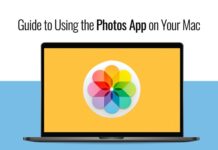The SaaS (Software as a Service) model is one of the most popular features of cloud computing. Nowadays, many companies and individuals alike leverage SaaS products for their daily tasks and activities.
The best thing about this service is that people can subscribe to a product and use it as long as they need to. This is also what SaaS companies rely on – for people to subscribe and remain active users for as long as possible.
Also Read: Spotify can’t play this right now
But how do you convince people to use your product, especially considering the fact that there’s a lot of competition in the market today? Simply put, you optimize everything for better conversion rates. More often than not, that’s easier said than done.
The key is to understand your target audience well and cater to their needs as much as you can. The best place to start with conversion rate optimization is your website.
The main reason is that your website is the main source of information, and a lot of consumers will first stop by your website to get informed.
With that in mind, here are a few conversion rate optimization tips for SaaS companies.
1. Create a killer homepage
Your website’s homepage is oftentimes the first page visitors will land on. The main reason is that many SaaS companies use their homepage as their landing page. This is great because a homepage is also an introduction to the rest of your website, as well as an introduction to your product.
The design of your homepage is crucial because people usually form first impressions based on visuals alone. As a matter of fact, it only takes 50 milliseconds for people to form a first impression based on the design of your page.
No matter how great your product may be, people might simply bounce off if they don’t like what they see. Therefore, focus on the design of your homepage to ensure that people are encouraged to stay and explore further rather than driving them away.
If you operate in New York, for instance, you can hire a web design agency from NYC to help you out. Local agencies know how to work the crowd with design elements, so you won’t have to worry about that anymore. Aside from visuals, it’s important that your homepage contains the right message with the right information to help visitors understand what your product is all about.

2. Portray your unique value proposition
As mentioned before, visuals play a vital role in encouraging visitors to remain on your website. Still, the right message is also the key to leading them down your conversion funnel. This is where your unique value proposition (UVP) comes into play.
However, your UVP is not a slogan or a catchphrase. Instead, it’s a straight-up statement about your product’s features and the benefits it offers to consumers. Don’t overwhelm visitors with information. What you should do is keep your UVP short, impactful and straight to the point.
Moreover, include a CTA below your UVP to encourage visitors to click on it to find out more or try the product. The fact of the matter is that consumers want to get informed before they invest in your product or service.
Even if they found out about your SaaS company from a referral, they’ll still want to know more before they make the decision. If you enable visitors to get what they need seamlessly, you’ll have better chances of encouraging them to convert.
-
3. Leverage social proof

When it comes to conversion rate optimization, social proof has always been one of the most effective techniques. Many marketers exploit this concept to encourage more people to convert.
As you may already know, consumers are quick to trust companies, but they are more trustworthy towards other consumers. Therefore, if one of your visitors sees that you already have happy and satisfied customers, they are more likely to convert as well.
Leveraging social proof requires a bit of finesse. You can’t overdo it, or consumers will notice that you’re trying too hard. Instead, consider various ways of using social proof and use what you think will work best for your target audience. Here are a few examples.
- The list of big companies – A lot of companies display logos of companies and brands that use their product or service.
- User reviews and testimonials – The first-hand experience from other users and companies shows visitors what it’s like for others who use your products and services.
- The number of users – Showcasing the number of active users tells visitors that you already have an established customer base, which is a sign that people are generally satisfied with your product.
- Success stories – Showing visitors how your product or service has helped others will encourage them to convert. Success stories work similarly to reviews and testimonials.
-
4. Provide a seamless experience
In most cases, visitors decide to bounce off because they’ve encountered an obstacle or an inconvenience while browsing your website. This can mean anything from slow page loading time to redirects and errors on your pages.
The more effort consumers must put into finding what they’re looking for on your pages, the more aggravated they’ll become. Sooner or later, they might decide to abandon everything and bounce if the issues persist.
By reducing friction on your website and by removing obstacles and inconveniences, you provide visitors with a seamless experience. The better the experience, the greater the chances for conversions are. Proper website optimization is the key to providing visitors with such an experience.
That includes improving website speed, ensuring seamless navigation, organizing articles and blog posts and so on. If you don’t know how to optimize your website properly, you can always find someone to do it for you.
For example, you can look up companies that specialize in web design and development agency nyc and find the one whose services suit you most. Then, once you get professional assistance, you can optimize your website and ensure that no more visitors will bounce due to inconveniences.
-
5. Optimize the pricing page
Of course, everyone is really interested in how much it’s going to cost them to use your product. Pricing is of vital importance when it comes to conversion rate optimization. You want your product to be affordable, but you also want to make a profit, so a perfect balance is required, indeed.
The best way to present your offers is to segment your pricing plans starting from the cheapest plan onward. You can also make suggestions and recommendations to consumers based on their needs.
The key is to leverage some innovation and creativity when it comes to pricing plans. Consumers like to know that they have multiple options to choose from. Here are a few examples you should consider experimenting with.
- Free trial – Offer consumers a free trial to test out your product before they decide to subscribe.
- Freemium – Allow consumers to use some of the basic features your product has to offer for free and charge for additional features should consumers decide to opt-in.
- Custom plans – This is arguably the best option when it comes to pricing plans as it allows consumers to pick the features they want and create a custom solution based on their needs. You can negotiate the pricing with the customer after they’ve decided which features they want to be included.
Another thing you can do is highlight discounts, special offers and promotions on the pricing page to help consumers convert. Limited time offers oftentimes create a sense of urgency that encourages people to decide on the spot.
6. Provide proper onboarding
Regardless of whether your website visitors have converted or not, you should provide them with proper onboarding. What that means is that you help them familiarize themselves with your product and its features.
That includes tutorials on how to use the products, demo videos explaining each feature, in-depth guides for specific tasks and so on. Helping consumers understand what your product does and how, can encourage them to convert.
In addition, it will help retain customers that have already converted. This strategy is essential for lead nurturing because helping consumers at every step of the way down your sales funnel is crucial for ensuring additional conversions.
If consumers convert without knowing how your products works, they might decide to unsubscribe after a short while.
As mentioned before, the goal of every SaaS company is to encourage as many people as possible to subscribe and to ensure those people remain active users for a long time. Therefore, both acquisition and retention are equally important for proper conversion rate optimization.
Conversion rate optimization (CRO) is crucial for SaaS businesses that rely on subscriptions. The tricky part is that people can unsubscribe just as easily as they’ve subscribed, but that doesn’t bode well for your company. That’s why it’s important to focus on encouraging consumers to convert and retain them as active customers by ensuring their satisfaction.
Author bio
Travis Dillard is a business consultant and an organizational psychologist based in Arlington, Texas. Passionate about marketing, social networks, and business in general. In his spare time, he writes a lot about new business strategies and digital marketing for DigitalStrategyOne.








